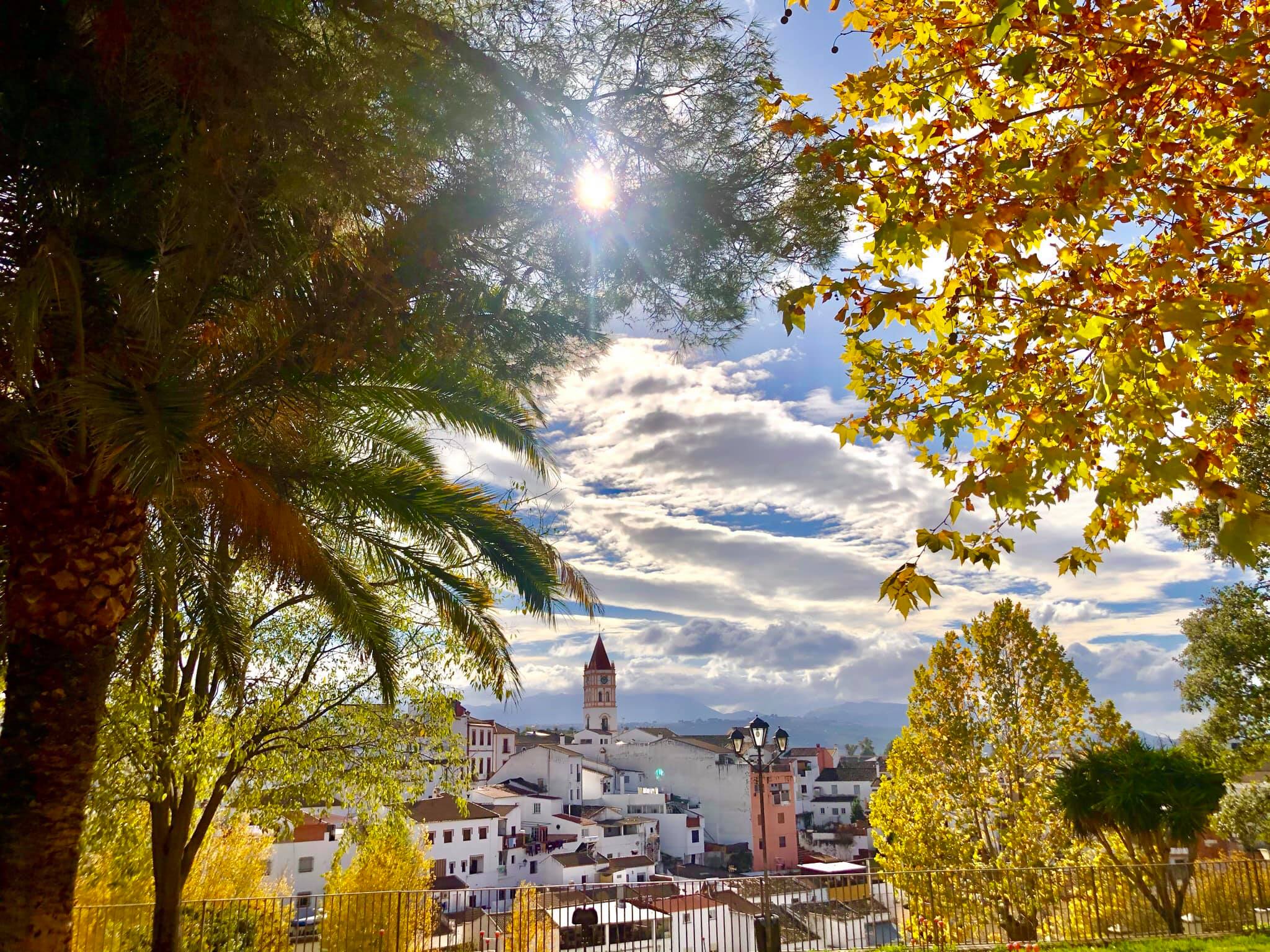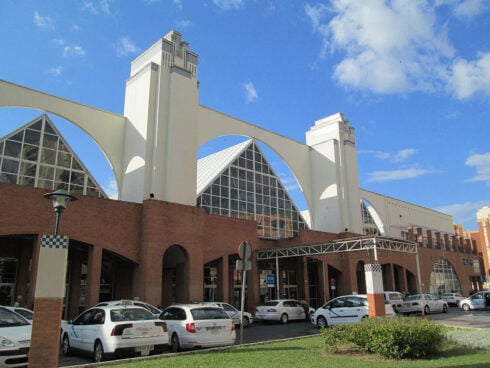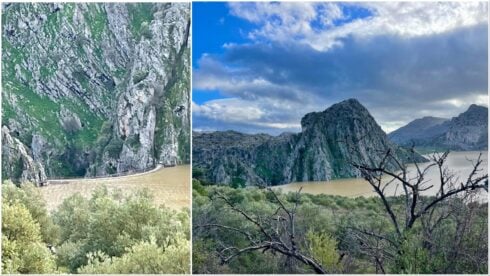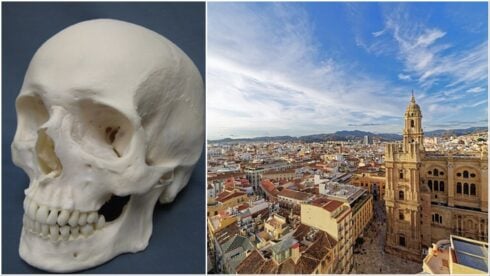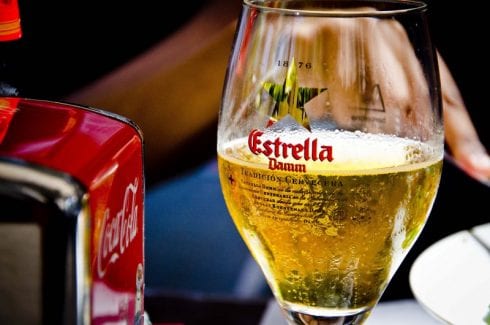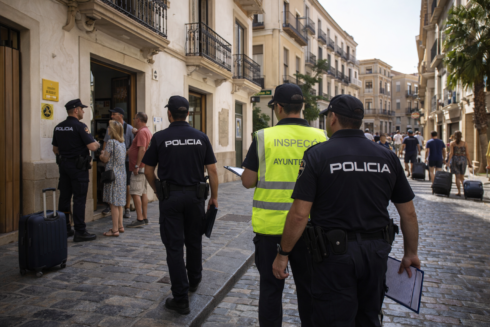IT might only be five minutes from Ronda to Arriate by car, but it’s five light years away in character.
Indeed what Ronda has in history and heritage, its nearest neighbour of Arriate has in authenticity and charm. And it definitely has more fun.
A buzzing village of nearly 5,000 people, Arriate offers a great quality of life, far from the usual tourist drag and it punches well above its weight.
Fiercely independent of Ronda, it wrestled control from its near neighbour over four centuries ago and the locals insist they have always been entirely different.
It was in fact on February 14, 1630, that the villagers paid 352,739 Maravedies in order to buy their independence from Ronda.
It then took its name from an estate which had existed since the Moorish times, with Arriate deriving from the Arabic term Arriadh, which means ‘the gardens’.
And this was no surprise as the leafy area is well irrigated and long supplied most of the fruit and vegetables to nearby Ronda, which totally envelops Arriate making it a sort of island.
But while just over eight kilometres square – the smallest district in Malaga province – it is one small village that massively punches above its weight.
Staunchly left wing since the death of dictator Francisco Franco in 1975, the locals insist their snobbish ‘pico’ neighbours may have the money, but Arrietenos are far more worldly and friendly.
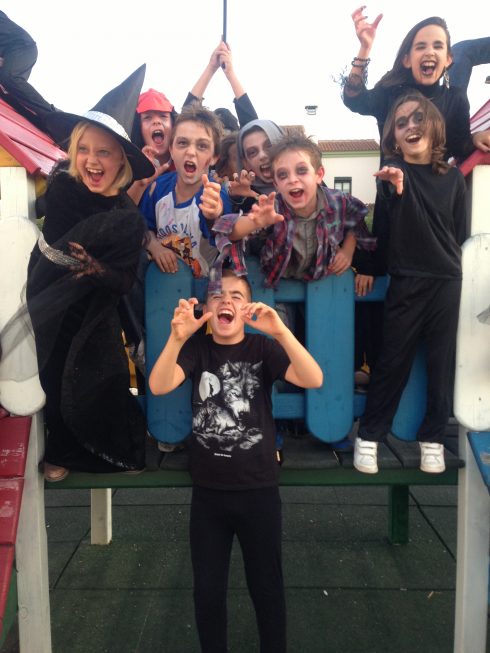
“We are certainly far more open than the locals in Ronda,” explains businesswoman Carmeli Gamarro, whose family firm Melgar have been curing and salting meat for many centuries.
“The Arriatenos are worldly people, who have travelled the globe in order to work,” she continues.
This is certainly the case with the majority of them having to emigrate to other parts of Europe – principally France, Switzerland and Germany – during the harsh impoverished years of the 1960s and 1970s before the death of Franco.
Many of them finally made it back and you can’t fail to notice the number of contented pensioners hanging around watching the day go by.
One place, Bar La Albarra is so famous for these old boys that one Dutch photographer put together an exhibition based entirely around its regulars.
There are dozens of bars here for them… but equally there are dozens of shops, with at least two greengrocers, two flower shops, three bakeries and four butchers alone.
To take a pulse of the village spend five minutes in the queue at Pedro Montesino’s greengrocer, which usually snakes around the shop.
This is as good a snapshot of life in this Andalucian village as I can possibly conjure up. And there is always banter and discussion on the events of the week.
A hard-working man, Pedro typifies the hard-working locals and is up with the lark to locate his wonderful selection of fruit and veg and spends much of his afternoon delivering it around the nearby area.
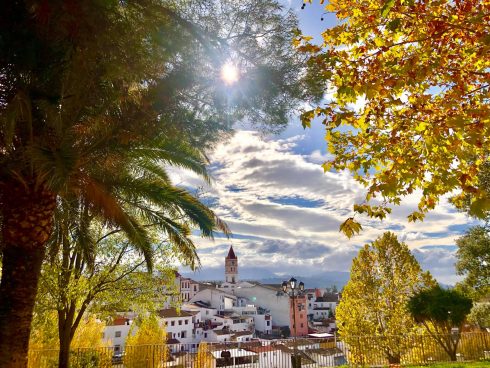
“And as long as the locals keep supporting our local shops and demanding good quality goods then I will continue finding them,” he says.
Pedro is typical of the Arriate stock. A staunch supporter of old fashioned village life, he spends most weekends enjoying the local countryside, when not looking after his ageing parents.
A keen hiker, he is forever in training for this or that, the highlight of his year being the annual 101km walk organised by nearby Ronda’s famous Foreign Legion.
“It is the best thing about living in a village like this,” he explains.
Local mayor Javier Anet is of a similar mindset and sums up Arríate’s passion for the countryside and nature.
A staunch environmentalist, having studied Geography at university, he is keen to promote the wonderful green spaces and walks around the local area.
In particular, the trails around the Arroyo de la Ventilla, a stunning hidden valley choked with nature and evidence of man, going way back before the Romans.
“It’s a breathtaking space and a real adventure for anyone looking for a genuine escape,” he explains. “It’s this natural way of life we want to promote to anyone thinking of visiting the area.”
Anything but your average politician, he has spent the last few years working part-time as a photographer and had various photos published in the national press. A few are featured here.
It is little surprise that Arriate – after Ronda – is one of the only inland Malaga villages to continue to grow over the last few decades.
Much of this must be down to its laid back nature and reputation for being a party town.
Despite being ruled by the IU (or Communist party) for well over a decade (the socialist PSOE party finally took over a few years ago), there is more interest in having fun than the teachings of Chairman Mao.
This might perhaps explain why – despite its apparent hard left leanings – the village has some of the best known Easter parades in Andalucia.
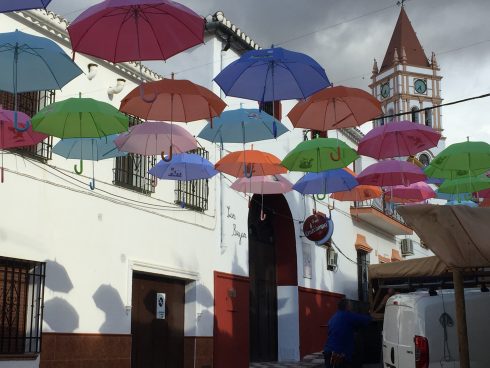
Highly competitive and reaching fever pitch around Good Friday, practically every family has a member in one parade or another.
Indeed, such is the clamour to be involved, the brotherhoods even hold lotteries for the right to carry the floats (or tronos) of Jesus and Mary.
“It has always seemed a real contradiction to me,” says Jose Antonio Coca, a local fitness instructor and masseur, who grew up in the town. “The processions are taken very seriously and they are very moving, but it is a simple fact that most of those involved hardly ever go to church and so it is really just down to tradition.”
Aside from the 400 years of tradition that brings thousands of visitors to see the Hermandad del Santisimo Cristo de la Sangre y del Santo Entierro de Cristo at Easter, there are other festivals such as the Romeria, the Dia de la Vieja, and the now famous Fiesta en el Aire, which outside of the pandemic normally takes place in October.
“It is this sort of thing that really makes the Arriate people stand out,” explains former mayor Melchor Conde, who now works for the Málaga provincial authorities. “They are above all very generous; and always have an open door and are happy to give you what they have.”
Another curious trait about Arriate is its wealth of musical talent. There are two town bands, a drumming group and ‘everyone plays one instrument or another,’ it is claimed.
It is a tradition that can be traced back even before the origins of the town, when a mythical group of country musicians roamed the area playing music in the dead of night.
Known as La Aurora de Arriate, the group of musicians still keep up the tradition playing in the dead of night on Sunday morning between the hours of 4am and 6am.
With origins from Arabic times in the 13th century, the coplas, or local songs, have been passed down from generation to generation and became famous when in 1973 the British National Geographic Society recorded them for an album on Spanish cultural music.
A capacity for music and culture is all too obvious with a visit to the incredible Los Caireles restaurant on the high street.
There are few surprises in the Serrania de Ronda as pleasant as walking through the anonymous, easy-to-miss doors into this wonderful space that was once a cinema.
The brainchild of brothers Roberto and Monolo Rivera, they have undertaken an amazing conversion of the 1940s Cine Ideal, that is incredibly still intact out back.
The bar and open-plan restaurant with its glass roof light is just one small corner of what was once the cinema. And what a gem it is, with all its cine memorabilia scattered around the walls and corners.
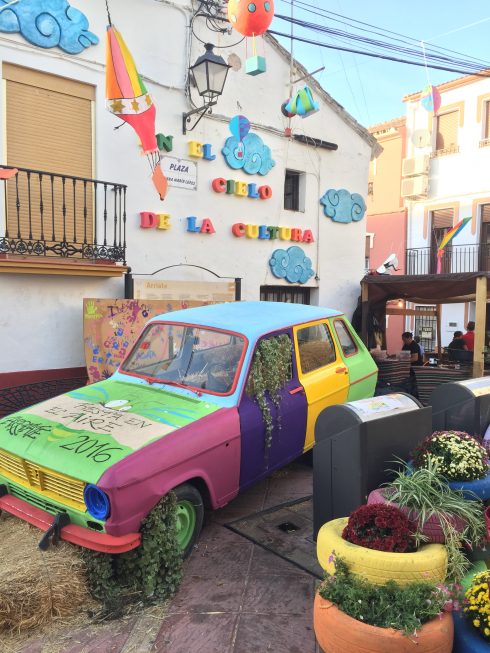
“Our father was a real film fantasist,” says Monolo. “This was one of the most popular cinemas in the Serrania.
“People came for miles around despite the movies being heavily censored by the local priest and mayor, who would watch the film first demanding cuts all over the place.”
Running until 1988, when due to dwindling audiences part of it had to be converted into a flamenco venue, the brothers have kept it intact out back despite numerous offers from developers to turn it into flats.
“This is our legacy and part of our town’s key history,” says Roberto. “I grew up watching Cinema Paradiso and always dreamt of one day opening the cinema up again. One day we hope to be able to find the funding to do that.”
For the time being, the restaurant is going from strength to strength with its young chef, Ivan Tirado, who trained under two-Michelin star Benito Gómez at nearby Bardal (see review later).
The brothers are also already thinking of a few concerts and special events for the festive season as well as next year’s Fiesta en el Aire, which was actually modelled on an idea that came from their father in the 1950s.
Taking place each October, the festival is an ‘open air’ celebration of the town’s artists, musicians ‘and creativity in general,’ explains Roberto, who is himself a photographer.
Weather permitting, the three day bash sees the whole town coming out onto the streets for a range of concerts, food and general fun.
It is, after all, what Arriate is about.
READ MORE:
- Olive Press editor Jon Clarke talks Madeleine McCann case on leading British podcast
- EYE ON IBIZA: Olive Press Editor Jon Clarke discovers why despite coronavirus, it’s more than all white on the…
- EXCLUSIVE: Jon Clarke goes on the hunt of Spain’s La Tigresa, the evil ETA terrorist who inspired hit BBC…
Click here to read more News from The Olive Press.

